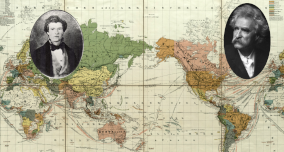Worms (German pronunciation: [vɔʁms] ⓘ) is a city in Rhineland-Palatinate, Germany, situated on the Upper Rhine about 60 km (40 mi) south-southwest of Frankfurt am Main. It had about 84,646 inhabitants as of 2022.
A pre-Roman foundation, Worms is one of the oldest cities in northern Europe. It was the capital of the Kingdom of the Burgundians in the early fifth century, hence is the scene of the medieval legends referring to this period, notably the first part of the Nibelungenlied.
Worms has been a Roman Catholic bishopric since at least 614, and was an important palatinate of Charlemagne. Worms Cathedral is one of the imperial cathedrals and among the finest examples of Romanesque architecture in Germany. Worms prospered in the High Middle Ages as an imperial free city. Among more than a hundred imperial diets held at Worms, the Diet of 1521 (commonly known as the Diet of Worms) ended with the Edict of Worms, in which Martin Luther was declared a heretic. Worms is also one of the historical ShUM-cities as a cultural center of Jewish life in Europe during the Middle Ages. Its Jewish sites (along with those in Speyer and Mainz) were inscribed on the UNESCO World Heritage List in 2021.
Today, the city is an industrial centre and is famed as the origin of Liebfraumilch wine. Its other industries include chemicals, metal goods, and fodder.
Worms' name is of Celtic origin: Borbetomagus meant "settlement in a watery area". This was eventually transformed into the Latin name Vormatia, in use since the 6th century, which was preserved in the Medieval Hebrew form Vermayza (ורמייזא) and the contemporary Polish form Wormacja.
According to tradition, the name derives from when the legendary hero Siegfried slew a lindworm (dragon) near the city, as recounted in the Nibelungenlied.
See Bædeker The Rhine from Rotterdam to Constance (1878), Worms
